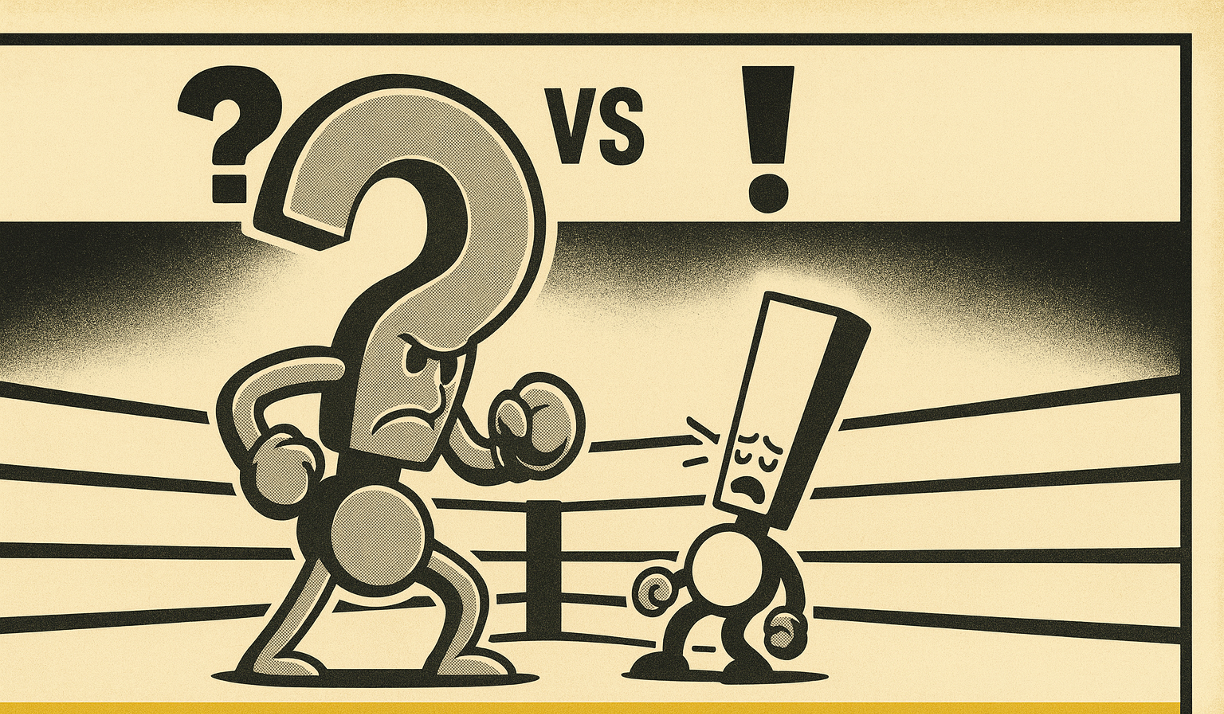Why “?” Beats “!”
An emphatic statement tells.
A question invites.
And that small mark of punctuation often determines whether teams react or reflect.
Statements drive activity.
Questions drive accountability.
The Science Behind the Question Mark
1. The Mere-Measurement Effect
Simply asking people about their intentions increases the odds they’ll follow through.
When you say, “Be ready for Friday’s checkpoint,” you’ve set a task.
When you ask, “How are we looking for delivery at Friday’s checkpoint?” you invite reflection and ownership.
That simple shift makes the team visualize progress and self-assess. Once people picture success, their brains work to stay consistent with it. It’s a quiet but powerful commitment loop.
2. Reactance: Why Commands Backfire
Behavioral scientists call it psychological reactance—the instinct to resist when we feel controlled.
“Fix this.” triggers it.
“What’s getting in the way of fixing this?” disarms it.
Questions preserve autonomy, which keeps energy high and brings hidden barriers to the surface.
3. Questions Build Connection
Harvard research shows people who ask more questions—especially follow-ups—are liked and trusted more.
In execution work, that trust is leverage.
Questions signal curiosity and respect; statements signal finality.
If you want truth instead of politeness, start with a question.
4. Questions Spark Cognitive Work
A question is a neural interrupt. It flips the brain from passive reception to active search.
A statement—“We need tighter coordination.”—invites agreement or defense.
A question—“Where is coordination breaking down?”—opens a loop the brain wants to close.
That’s where insight turns into action.
Coaching Execution with Questions
Coaching effectively isn’t giving answers and instruction. It’s creating space for others to think better.
Questions push teams to reflect, clarify, and own the next move. They transform accountability from something enforced to something chosen.
Use statements to set direction.
Use questions to build capability.
Because execution improves most when people are thinking for themselves.
Next time you’re about to make a statement, pause and ask: What question would create more ownership right now?

